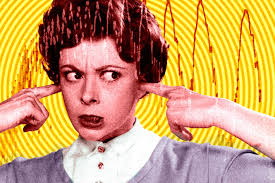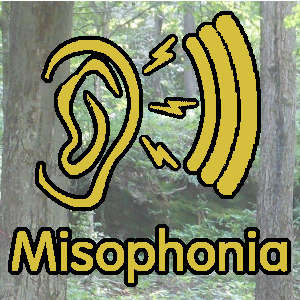 Stephen Geller Katz LCSW-R
Stephen Geller Katz LCSW-R
Misophonia Cognitive Retraining Therapy
 Stephen Geller Katz LCSW-R
Stephen Geller Katz LCSW-RMisophonia Cognitive Retraining Therapy
Misophonia Cognitive Retraining Therapy, as featured on the MTV True Life episode: “I Have Misophonia” premiering Friday, December 16th, 7:00 PM EST. See Clip >
|
|
|
| Moderate to severe anxiety triggered by chewing sounds, including: | ||
|
|
|
You may also be affected by visual stimuli, such as repetitive foot or body movements, fidgeting or movement you observe out of the corners of their eyes. Intense anxiety, rage and avoidant behavior may develop as a result of misophonia.
 * Do you feel your family and friends don’t understand how much you suffer?
* Do you feel your family and friends don’t understand how much you suffer?
* Do you often feel you can just suffer through a social event where there is eating present only to find that you must “escape” before you have a panic attack?
* Do you find that some people are at first understanding and make some efforts not to make the triggering sounds in front of you, but soon forget and constantly have to be reminded, causing you to feel angry, anxious and depressed?
* Are you avoiding social activities that you enjoy because of the misophonia?
* Are you fearful of losing your job and/or is the misophonia effecting your job performance?
You may be a candidate for Misophonia Cognitive Retraining Therapy, or MCRT.
Stephen Geller Katz, LCSW-R, with over 20 years of clinical experience, a New York University graduate, developed Misophonia Cognitive Retraining Therapy and founded Misophonia Cognitive Center™ in response to the growing number of people with Misophonia coming to his private practice from audiologists and ENTs. He discovered that by helping people to retrain and reinterpret the thoughts around their Misophonia, anxiety and depression symptoms began to improve. But even more important so did the Misophonic trigger response.
 Are you suffering from extreme sound sensitivity? You can go through intolerable pain if your ears are sensitive to sounds. You might be surprised to discover that people believed sound sensitivity to be a myth back in the day. However, with the progress of science and technology in the medical field, professionals have finally discovered that sound sensitivity is a thing. If you happen to know someone who suffers from sound sensitivity or you are a victim to this problem, don’t worry, there is a common cause that we’ll discuss in this article that might help you overcome this trouble.
Are you suffering from extreme sound sensitivity? You can go through intolerable pain if your ears are sensitive to sounds. You might be surprised to discover that people believed sound sensitivity to be a myth back in the day. However, with the progress of science and technology in the medical field, professionals have finally discovered that sound sensitivity is a thing. If you happen to know someone who suffers from sound sensitivity or you are a victim to this problem, don’t worry, there is a common cause that we’ll discuss in this article that might help you overcome this trouble.
Some particular sounds that can trigger psychological or emotional responses from people. People often deem these reactions to be unreasonable as they aren’t aware of the triggering element behind these seemingly irrational behaviors. Panic, annoyance, and anger are some common reactions of people facing sound sensitivity, also known as Misophonia. People suffering from this problem often find oral sounds like chewing, breathing, or eating to be extremely triggering. The sound of fingers tapping, windshield wiping and keyboard typing are some other sounds that cause sound sensitivity in people facing misophonia.
 After conducting several tests on a human brain, doctors concluded that there is a part of our brain known as the anterior insular cortex (AIC) causes high activity in brain parts of people with misophonia when they hear triggering sounds. The brains parts that are responsible for emotions, fears and long-term memories became active as soon as hearing the sounds. People suffering from this problem are prone to having strong reactions of an emotional nature, which goes on to prove that there are certain parts of the brain that causes these traumatic experiences.
After conducting several tests on a human brain, doctors concluded that there is a part of our brain known as the anterior insular cortex (AIC) causes high activity in brain parts of people with misophonia when they hear triggering sounds. The brains parts that are responsible for emotions, fears and long-term memories became active as soon as hearing the sounds. People suffering from this problem are prone to having strong reactions of an emotional nature, which goes on to prove that there are certain parts of the brain that causes these traumatic experiences.
Essentially, you can categorize misophonia as a neurological disorder that is caused due to auditory or visual stimuli. The range of severity is not similar in everyone. Some people have mild sensitivity, while others have extreme sensitivity.
Following are some feelings that mild reactions can bring about in misophonia patients:
Severe responses bring about the following reactions:
Sadly, misophonia can severely cramp social lives. Anticipatory anxiety is the main reason why people facing this sound sensitivity problem find difficulty in social situations.
People commonly develop sound sensitivity during their teen years. It is a rare disorder that can happen to anyone. If you happen to be a misophonic or know someone else who is one, do not worry, there are a few therapies and behavioral changes that you can practice to make sure that you do not struggle with your day to day life.
People before the 90’s were not fortunate enough to receive treatment for this problem. However, we are lucky enough to live in an age of progression and scientific development as there are numerous clinics present in America that work specifically towards improving the lives of misophoniacs.
It’s your lucky day if you are looking for a reputable clinic to treat your misophonia as misophonia cognitive center is here to help you with your problem, allowing you to live life happily without any fear of triggering sounds. Contact us to book an appointment as soon as possible.
 Dealing with issues related to sound sensitivity is never fun, especially if it’s a persistent problem that manifests itself on a regular basis and is triggered by a variety of factors in your daily life. For some people, living with a condition like this can be downright dangerous due to the circumstances in which they are triggered, making it especially important to explore different coping mechanisms early on. It doesn’t matter if you’re dealing with tinnitus, misophonia or something else – you have a lot of potential control over the situation, and you must make use of it.
Dealing with issues related to sound sensitivity is never fun, especially if it’s a persistent problem that manifests itself on a regular basis and is triggered by a variety of factors in your daily life. For some people, living with a condition like this can be downright dangerous due to the circumstances in which they are triggered, making it especially important to explore different coping mechanisms early on. It doesn’t matter if you’re dealing with tinnitus, misophonia or something else – you have a lot of potential control over the situation, and you must make use of it.
 If you can wear earplugs in environments that regularly trigger your irritations, it’s probably best to get used to doing that from as early as possible. Noise-cancelling headphones are another good option commonly used by people dealing with misophonia, although be careful that you don’t push things in the other direction – it can be easy to get carried away with a pair of powerful headphones and adding tinnitus on top of your pre-existing conditions is the last thing you want to do.
If you can wear earplugs in environments that regularly trigger your irritations, it’s probably best to get used to doing that from as early as possible. Noise-cancelling headphones are another good option commonly used by people dealing with misophonia, although be careful that you don’t push things in the other direction – it can be easy to get carried away with a pair of powerful headphones and adding tinnitus on top of your pre-existing conditions is the last thing you want to do.
 If you’re dealing with something like misophonia, it can severely affect your relationships with others, especially if you have a stronger case of the condition that results in greater irritation and even potential physical outbursts. Not everyone understands what misophonia is, and the same goes for all related conditions that many people around us suffer from on a daily basis. Take your time to explain what you’re feeling to the people in your life so that they can be more understanding. Maybe someone will disagree and claim that you’re faking it, but that will only reveal things about that person that you were not aware of before.
If you’re dealing with something like misophonia, it can severely affect your relationships with others, especially if you have a stronger case of the condition that results in greater irritation and even potential physical outbursts. Not everyone understands what misophonia is, and the same goes for all related conditions that many people around us suffer from on a daily basis. Take your time to explain what you’re feeling to the people in your life so that they can be more understanding. Maybe someone will disagree and claim that you’re faking it, but that will only reveal things about that person that you were not aware of before.
 If you want to maximize your chances of treating the condition successfully and bringing some peace back into your daily life, you have to get the problem addressed with the help of medical professionals as early as possible. Misophonia can quickly become much more problematic than it initially is, and delaying your treatment is one of the worst things you could do.
If you want to maximize your chances of treating the condition successfully and bringing some peace back into your daily life, you have to get the problem addressed with the help of medical professionals as early as possible. Misophonia can quickly become much more problematic than it initially is, and delaying your treatment is one of the worst things you could do.
We understand how you feel and can connect you with the most respected misophonia experts in NYC, giving you a proper boost in dealing with the condition properly. Give us a call at 646-585-2251 and find out what we can do for you today!